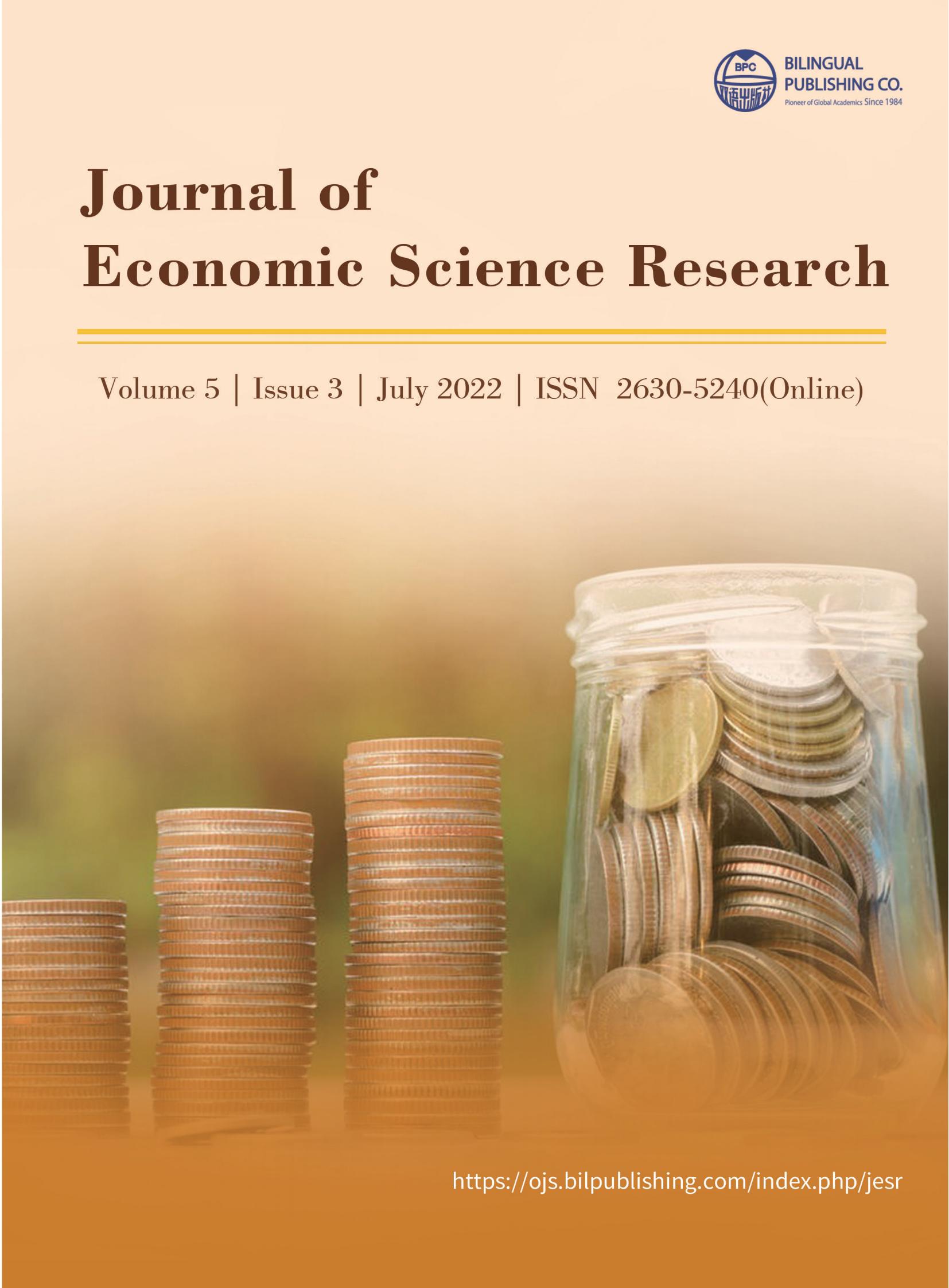A Study on Influencing Factors of Happiness of Urban Low-income Groups
DOI:
https://doi.org/10.30564/jesr.v5i3.5042Abstract
With the completion of the strategic vision of building a moderately prosperous society in an all-round way in 2020, China’s economic development has entered a new normal. The concept of innovative, coordinated, green, open and shared development will lead China’s economic progress and development. However, the development of urban and rural areas and regions in China is still not coordinated, and the sudden COVID-19 outbreak has caused a serious impact on urban low-income groups. Due to the characteristics of poor employment stability, low income and single source, as well as greater family pressure of urban low-income groups, the author focuses on the influencing factors of their feelings of happiness. This paper assumes that the satisfaction degree of residents’ needs is positively correlated with residents’ feelings of happiness. Based on Maslow’s hierarchy of needs theory, this paper analyzes the factors that may affect the happiness of urban low-income groups in five levels, and explores the special needs and difficulties of urban low-income groups in the context of the epidemic. So as to find ways to improve the happiness of urban low-income people to provide reference.
Keywords:
City, Low-income groups, Happiness, Factors affecting the introductionReferences
[1] Yang, L.X., 2019. Research on common prosperity of low-income Groups. Social Security Review. (04), 70-86.
[2] Wang, H.Y., Wei, H., 2021. Analysis of influencing factors of residents’ subjective well-being. Population and Health. (10), 33-37.
[3] Dong, Y.Q., 2021. Society to participate in the influence of the subjective well-being of the elderly research. Shandong university of finance and economics. (09), 12-16.
[4] Xia, Y., 2021. The relationship between subjective well-being and social well-being in China. Nanjing social science. (3), 54-63.
[5] Zhang, L., 2020. Why hasn’t economic growth led to increased happiness on the influence factor of subjective well-being review. Nankai Economic Research. (04), 24-45.
[6] Sun, D.Sh., 2020. Research on public service management to improve the well-being of low-income groups. Employment and Security. (07), 176-177.
[7] Feng, Y.Q., Zhang, T.Sh., 2016. Generational differences in perspective of peasant workers’ subjective well-being factors analysis. Journal of Population. 38(05), 60-69.
[8] Ning, J., 2016. Study on the influencing factors of farmers’ happiness in the process of urbanization. Tianjin University. 22(02), 66.
[9] Cui, H.Zh., 2013. Analysis of influencing factors of subjective well-being of rural elderly -- Based on questionnaire data of rural households in 8 provinces (Regions) in China. (6), 139-160.
[10] Luo, J., Huang, Y.P., Chen, Zh., et al., 2019. Research on housing Demand and housing supply of urban low-income groups: Based on micro-empirical Investigation. (112), 23-28.
[11] Guo, Zh.J., 2020. Research on public Service Demand Expression Mechanism of urban Low-income Groups. Central China Normal University.
[12] Wang, K.J., 2019. A theoretical and empirical analysis of influencing factors of subjective well-being. Journal of Xi’an university of arts and sciences (social science edition). 16(02), 45-49.
[13] Zhao, L.Y., 2019. Public expenditure and farmers’ subjective well-being: An empirical analysis based on CGSS data. Finance and Economics. (10), 33.
Downloads
Issue
Article Type
License
Copyright and Licensing
The authors shall retain the copyright of their work but allow the Publisher to publish, copy, distribute, and convey the work.
Journal of Economic Science Research publishes accepted manuscripts under Creative Commons Attribution-NonCommercial 4.0 International License (CC BY-NC 4.0). Authors who submit their papers for publication by Journal of Economic Science Research agree to have the CC BY-NC 4.0 license applied to their work, and that anyone is allowed to reuse the article or part of it free of charge for non-commercial use. As long as you follow the license terms and original source is properly cited, anyone may copy, redistribute the material in any medium or format, remix, transform, and build upon the material.
License Policy for Reuse of Third-Party Materials
If a manuscript submitted to the journal contains the materials which are held in copyright by a third-party, authors are responsible for obtaining permissions from the copyright holder to reuse or republish any previously published figures, illustrations, charts, tables, photographs, and text excerpts, etc. When submitting a manuscript, official written proof of permission must be provided and clearly stated in the cover letter.
The editorial office of the journal has the right to reject/retract articles that reuse third-party materials without permission.
Journal Policies on Data Sharing
We encourage authors to share articles published in our journal to other data platforms, but only if it is noted that it has been published in this journal.




 Zhouhe Li
Zhouhe Li

